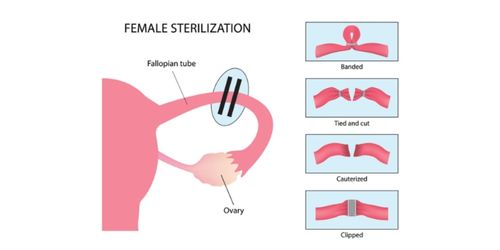Tubal Reconstruction Surgery
Tubal Reconstruction, also known as tuboplasty, is a microsurgical procedure aimed at restoring the patency and function of fallopian tubes that have been damaged or blocked due to infection, previous sterilization (tubal ligation), ectopic pregnancy, or pelvic surgery. This treatment offers a potential natural path to pregnancy for women who wish to conceive without assisted reproductive technologies.

What to Expect
Before the Procedure
- Detailed medical history and pelvic examination
- Imaging tests like HSG (Hysterosalpingography) or sonosalpingography to assess tube blockage
- Blood tests and pre-anesthesia evaluation
- Discussion about fertility goals and expectations
During the Procedure
Tubal reconstruction is typically performed using microsurgical techniques via laparoscopy or open surgery, depending on the location and extent of tubal damage. The blocked or scarred segment is removed or repaired, and the healthy ends of the fallopian tube are reconnected (reanastomosis).
After the Procedure
- Hospital stay of 1–2 days may be required
- Mild abdominal discomfort, which is managed with pain relief
- Rest for a few days followed by gradual return to routine activities
- Fertility monitoring begins around 6–8 weeks post-procedure

Benefits of Tubal Reconstruction
- Restores natural fertility
- Avoids the need for IVF in some cases
- Permanent solution without hormonal stimulation
- Cost-effective compared to repeated IVF cycles
- High success rates in selected patients
Ideal Candidates
- Women with previous tubal ligation who now wish to conceive
- Those with tubal blockages due to infections, endometriosis, or surgery
- Women under age 37 with good ovarian reserve
- Patients looking for a natural alternative to IVF
Pre- and Post-Procedure Care
Before: Avoid smoking, alcohol, and unprescribed medications. Follow fasting instructions and disclose all health conditions to your surgeon.
After: Take all medications as prescribed. Avoid intercourse and heavy activities for at least 2–3 weeks. Regular follow-ups and ultrasound monitoring are essential to track ovulation and healing.
Testimonials
"I had my tubes tied years ago, but thanks to tubal reconstruction, I conceived naturally after just five months!" – Seema T., 35
"We had lost hope until we found out about this surgery. It gave us a second chance at parenthood." – Meena J., 32
Frequently Asked Questions
How successful is tubal reconstruction?
Success rates range from 40%–80% depending on age, tubal damage, and surgical technique.
Is this better than IVF?
For suitable candidates, tubal reconstruction may provide a chance for multiple natural pregnancies, unlike IVF which is cycle-specific.
What are the risks?
Risks include infection, scarring, and ectopic pregnancy. Choosing an experienced surgeon minimizes these risks.
When can I try to conceive?
Conception is typically attempted 6–8 weeks after the surgery once healing is confirmed.
Can the tubes get blocked again?
While rare, re-blockage can occur. Regular monitoring helps catch issues early.
Contact Dr. Rainee Agrawal
If you’re considering tubal reversal or have been diagnosed with blocked fallopian tubes, consult Dr. Rainee Agrawal for expert advice and individualized care.
Contact Us+91 9179559565
Contact Person: Dr. Rainee Agrawal

